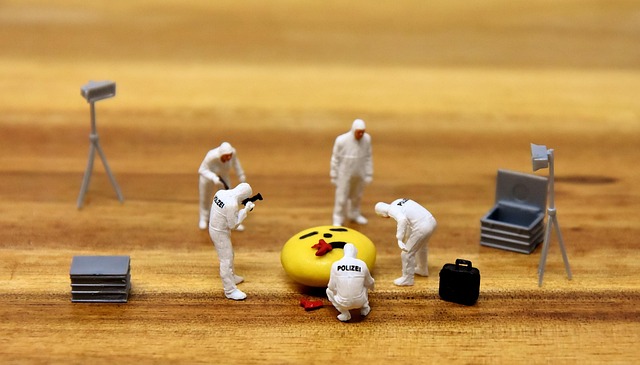The Role of Private Investigators in Collecting Evidence for Arbitration

Strong 8k brings an ultra-HD IPTV experience to your living room and your pocket.
Ugly conflicts do not only exist on Twitter, they also take place in the boardroom. Conflicts in arbitration are usually won by the side that has stronger evidence. That is where the role of the private investigators comes in, providing significant expertise to dig out and unearth the hidden information, identify the truth of the claims, and provide evidence that can count.
As opposed to random Internet rumors, the PI investigations are supported by surveillance, digital forensics, and reliable documentation that none can counter during a court appearance. It helps in filling the gap between suspicion and proof and, in such a way, makes arbitration more impartial and resolute.
In the high-stakes cases today, reputable private investigators are not secondary role players but critical in developing winning strategies.
Why Evidence Matters in Arbitration
The outcome of any arbitration is only as good as the dirt one can dig up. Independent evidence brings clarity, responsibility, and confidence, and keeps the process fair and without overly contentious and time-consuming bickering.
Legal Validity
Evidence presents factual support that justifies accusations and defenses, and enables an arbitrator to base conclusions on the documented truth instead of assumptions, and such a conclusion can withstand legal challenges.
Fair Outcomes
Well-documented evidence evens the playing field as it puts both sides on the table. It minimizes bias, guarantees equity, and makes rulings more objective and even-handed in complex cases of arbitration.
Dispute Clarity
Indisputable evidence pierces through complex explanations as it points to facts and eliminates speculations. This helps in making arbitrators understand matters within the shortest period possible and make decisions on the basis of accuracy and understanding.
Enforcement Strength
Arbitration awards made based on credible evidence are less prone to being challenged. The decisions based on facts are respected by courts and organizations, and there are low chances of appeal or challenge later.
Private Investigators: Key Players in Evidence Gathering
Surveillance Mastery
The good thing about private investigators is that they are discreet in observing individuals or activities. Their ability to capture accurate details renders the evidence concrete, admissible, and substantive in instances of legal or corporate disputes.
Background Checks
They dig deep, seriously, no stone left unturned, hunting for sketchy pasts, fake names, or anything that might raise an eyebrow. This evidence will help create a credible base and bring in a more vigorous conclusion in arbitration or litigation.
Asset Discovery
Private investigators can track assets, financial irregularities, and covert ownerships that are not recorded. This kind of evidence is essential in situations where there exists fraud, divorce, or financial settlement, so that the correct decisions can be made.
Digital Trails
Cyber traces, wiped-out information, and digital activities are studied by PIs. In today’s legal battles, that kind of electronic trail? It’s often the smoking gun.
Witness Location
They discover and locate witnesses who become very crucial in the presentation of facts. By mentioning credible witnesses, investigators develop a case further through the testimonies of the witnesses.
Fraud Detection
In criminal, personal, or insurance cases, the investigators are employed privately to identify trends of fraud. Their evidence-based reports pinpoint irregularities as well as provide actionable information to the attorneys or arbitrators.
Document Verification
They authenticate documents, contracts, and financial records to ensure that there is a seal of correctness. Authenticated evidence eliminates doubt and elevates the argument in the arbitration, safeguarding parties against fraud or forgery.
Covert Operations
When it is necessary, investigators carry out undercover operations to get the sensitive information. Their secret operations help unveil secret operations and give out proofs that could not otherwise be gathered using conventional techniques.
Techniques Used by Private Investigators
Surveillance Tactics
PIs go full ninja, watching, taking notes, catching habits, without blowing their cover. This is one of the strongest methods to produce evidence that does not alert the target, and when paired with modern digital evidence management tools, it becomes even more effective.
Digital Forensics
Forensics can retrieve deleted files, trace a digital footprint, and examine Internet use. Such observations can uncover the secrets of fraud, infidelity, or cybercrime cases very accurately and credibly.
Background Research
A thorough screening helps PIs to verify identities, employment records, and prior activities. In this manner, authenticity is ensured, and no counterfeit data is used in legal or commercial disputes.
Undercover Work
Investigators disguise themselves in order to obtain as much first-hand evidence as they can. This is a bold, but prudent procedure that brings to light covert behaviors or actions, because this is impossible in a superficial visit.
GPS Tracking
Oh, and GPS tracking? Totally legal, when done right. They slap a tracker on a car or follow assets, mapping every move. The technique offers sound geographic evidence, which is very useful in a fraud or infidelity case.
Conclusion
Basically, PIs are like chameleons. They blend stealth with precision, flipping over every rock while keeping it ethical. Their practice exposes hidden truths, strengthens cases, and renders information collection ethical, reliable, and effective to resolve sticky disputes.
Note: IndiBlogHub features both user-submitted and editorial content. We do not verify third-party contributions. Read our Disclaimer and Privacy Policyfor details.








